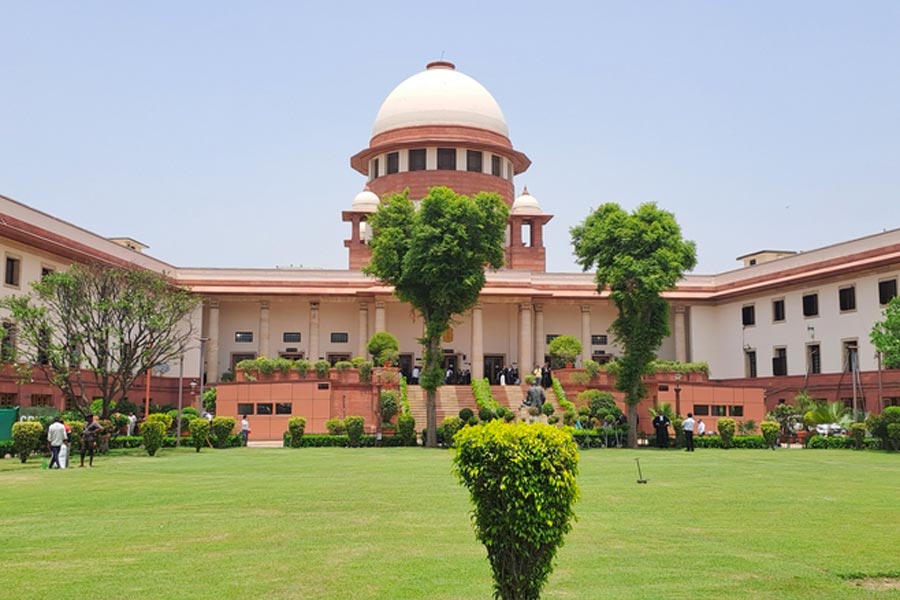The Supreme Court has issued guidelines to be followed by courts while deciding the genuineness of a will executed by a person before his death as “stringent requisites for the proof thereof have been statutorily enjoined to rule out the possibility of any manipulation”.
“A will is an instrument of testamentary disposition of property. It is a legally acknowledged mode of bequeathing a testator’s property during his lifetime to be acted upon on his/ her death and carries with it an element of sanctity,” a bench of Justices Abhay S. Oka and Sanjay Karol said in a recent judgment.
“It speaks from the death of the testator. Since the testator/ testatrix, at the time of testing the document for its validity, would not be available for deposing as to the circumstances in which the will came to be executed, stringent requisites for the proof thereof have been statutorily enjoined to rule out the possibility of any manipulation,” it added.
The court suggested the following principles for proving the validity and execution of a will:
That it is executed by the testator and that it was the last will executed by him/ her
It is not required to be proved with mathematical accuracy, but the test of satisfaction of the prudent mind has to be applied
A will is required to fulfil all formalities under Section 63 of the Succession Act, which means (a) The testator shall sign or affix his mark to the will or it shall be signed by some other person in his presence and by his direction and the said signature or affixation shall show that it was intended to give effect to the writing as a will; (b) It is mandatory to get it attested by two or more witnesses, though no particular form of attestation is necessary; (c) Each of the attesting witnesses must have seen the testator sign or affix his mark to the will or has seen some other person sign the will, in the presence and by the direction of the testator, or has received from the testator a personal acknowledgement of such signatures; (d) Each of the attesting witnesses shall sign the will in the presence of the testator, however, the presence of all witnesses at the same time is not required
For the purpose of proving the execution of the will, at least one of the attesting witnesses, who is alive, subject to the process of court, and capable of giving evidence, shall be examined
The attesting witness should speak not only about the testator’s signatures but also that each of the witnesses had signed the will in the presence of the testator
If one attesting witness can prove the execution of the will, the examination of other attesting witnesses can be dispensed with
Where one attesting witness examined to prove the will fails to prove its execution, then the other available attesting witness has to be called to supplement his evidence
Whenever there exists any suspicion as to the execution of the will, it is the responsibility of the propounder to remove all legitimate suspicions before it can be accepted as the testator’s last will. In such cases, the initial onus on the propounder becomes heavier
The test of judicial conscience has been evolved for dealing with those cases where the execution of the will is surrounded by suspicious circumstances. It requires to consider factors such as awareness of the testator as to the content as well as the consequences, nature and effect of the dispositions in the will; sound, certain and disposing state of mind and memory of the testator at the time of execution; testator executed the will while acting on his own free will
One who alleges fraud, fabrication, undue influence, etc, has to prove the charges. However, even in the absence of such allegations, if there are circumstances giving rise to doubt, then it becomes the duty of the propounder to dispel such suspicious circumstances by giving a cogent and convincing explanation
Suspicious circumstances must be ‘real, germane and valid’ and not merely ‘the fantasy of the doubting mind’. Whether a particular feature would qualify as ‘suspicious’ would depend on the facts and circumstances of each case. Any circumstance raising suspicion legitimate in nature would qualify as a suspicious circumstance, for example a shaky signature, a feeble mind, an unfair and unjust disposition of property, the propounder himself taking a leading part in the making of the will under which he receives a substantial benefit
The bench passed the verdict while dismissing an appeal filed by Meena Pradhan and her children challenging the legality of the will bequeathed by the deceased Bahadur Pradhan in favour of Kamla Pradhan, whom he is said to have married after allegedly divorcing Meena.










